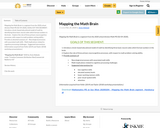
Activities Guide: Enhancing and Practicing Executive Function Skills with Children from Infancy to Adolescence
- Subject:
- Education
- Material Type:
- Activity/Lab
- Primary Source
- Author:
- Center on the Developing Child: Harvard
- Date Added:
- 11/23/2018

Activities Guide: Enhancing and Practicing Executive Function Skills with Children from Infancy to Adolescence

Executive Function is a growing buzz word in education. In my own school, I am hearing it more and more often. Our educational psychologist mentioned that we will all be receiving training soon. I knew that it sounded like something that could impact quite a few of my students. So, I did a little research of my own. I thought I would share my findings with you. I hope this will help you can get a jump start on helping this increasingly identified population, too.
So, what is executive function? What difficulties do these students have? How can we help? Our school's brilliant educational psychologist explains it like this.

What You’ll Learn
Snapshot: What Executive Functioning Issues Are
Executive Functioning Issues
Signs and Symptoms
Other Issues That Can Co-Occur With Executive Functioning Issues
Possible Causes of Executive Functioning Issues
How Executive Functioning Issues Are Diagnosed
How Professionals Can Help With Executive Functioning Issues
How You Can Help Your Child With Executive Functioning Issues

In over 30 years of clinical practice, Drs. Peg Dawson and Richard Guare have worked with thousands of children who struggle at home and in school. At the center of their struggles are weak executive skills, and through our writing and now this website, we spotlight these skills that are critical for school and life success.
We hope that by sharing what we have learned, we can help parents, teachers, and therapists to better understand the role executive skills play in healthy development and to identify tools and strategies they can use to assist “smart but scattered” kids become successful problem solvers and self-reliant adults.
Dr. Dawson offers a number of workshop options. In addition to the ones described below, she is happy to work with school districts to design trainings that meet their specific needs. These may include:
- workshops directed at regular education teachers to provide an overview of what executive skills are, how brain development governs executive skill development, what are developmentally appropriate expectations for executive skills at different grade levels, and classroom-based strategies to support executive skill development.
- workshops for special educators (including teachers, school psychologists, speech pathologists, occupational therapists, and behavior specialists) to learn how to design interventions both to limit the negative impact of weak executive skills and to help students learn effective coping strategies.
- consultation services to help school districts implement school-wide approaches targeting specific executive skill challenges. We have not found “off the shelf” curricula to be particularly effective for schools that want to do something more comprehensive to address executive skills. Rather, helping schools identify the specific challenges they want to address and to work with them to design an approach that fits the unique needs of the school or district appears to be a more effective approach.
- evening presentations for parents. These are offered to school districts within driving distance of Portsmouth, New Hampshire as a stand-alone offering. When a school district hires Dr. Dawson to do a full-day training with professionals, she is happy to provide a 1l5-2 hour presentation for parents at no additional cost.
(Peg has hosted PD in Saskatchewan before and would likely come back in the future) Has been initiated in the past from this source: http://www.jackhirose.com/

Mapping the Math Brain is a segment from the 2020 school division Math PD (02-04-2020),
GOALS OF THIS SEGMENT:
- Introduce a brain-based educational model of math by identifying three basic neural codes which format numbers in the brain.
- Explore the role of three primary neurocognitive processes, with respect to math problem-solving ability.
- Provide an attached summary of:
- Neurological processes with associated math skills
- Math implications related to cognitive processing challenges
- Suggested interventions
(Information acquired from Feifer (2019) and Taylor (2018) workshop presentations.)

Welcome!! The student take ownership in this activity that encourages creativity, voice, and choice. My students have told me that often this is the highlight of the year! I also feel that many executive functioning and classroom environment skills are enforced as well in this Unit. Students will need a generous amount of time to complete this extensive unit.

For young brains to retain information, they need to apply it. Information learned by rote memorization will not enter the sturdy long-term neural networks in the pre-frontal cortex (PFC) unless students have the opportunity to actively recognize relationships to their prior knowledge and/or apply new learning to new situations.
Here are some teaching strategies to help build executive function in your students.